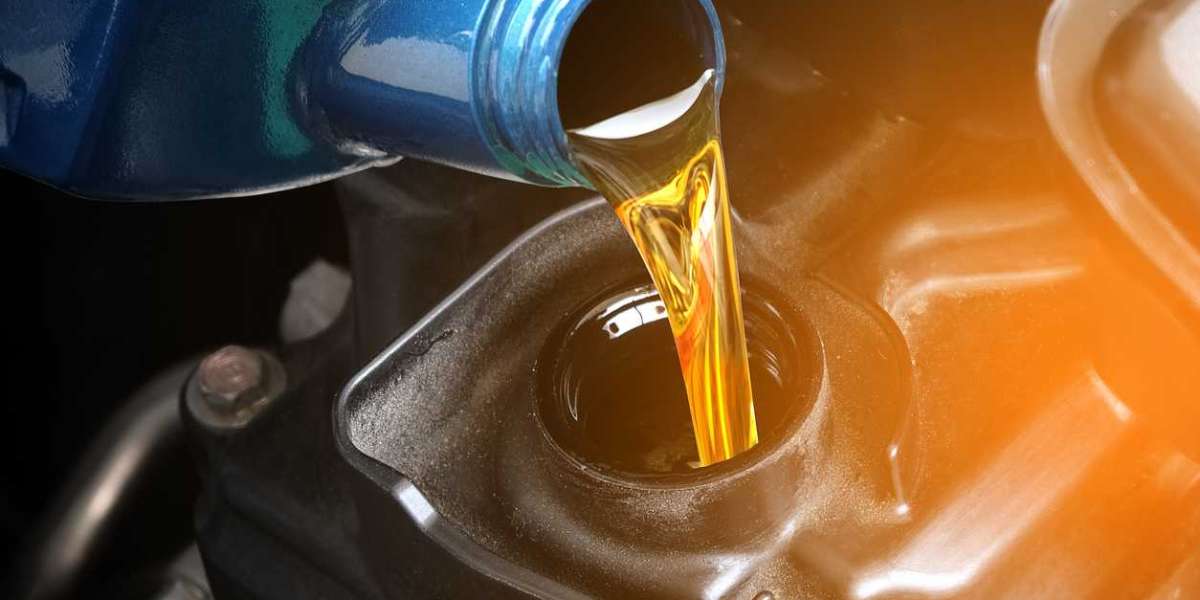Viscosity is one of the most critical physical properties of diesel fuel that influences its behavior in engines and overall performance. It refers to the resistance of the fuel to flow—essentially, how thick or thin the fuel is. This property affects fuel delivery, combustion efficiency, and engine wear, making it a crucial factor for ensuring the optimal functioning of diesel engines. Understanding the viscosity factors in diesel fuel can help operators and businesses prevent engine performance issues, reduce operational costs, and extend the lifespan of diesel-powered equipment.
In this article, we will explore the key factors that influence diesel fuel viscosity, why viscosity matters for engine operation, and how businesses can manage viscosity-related issues to optimize engine performance.
What Is Diesel Fuel Viscosity?
Viscosity is the measure of a liquid’s resistance to flow. In the context of diesel fuel, it refers to how easily the fuel moves through the fuel system, including the injectors, filters, and pumps. Diesel fuel with higher viscosity is thicker and flows more slowly, while low-viscosity fuel is thinner and flows more freely.
Fuel viscosity is essential for several reasons:
- It affects how well fuel is atomized in the combustion chamber.
- It influences how the fuel lubricates moving parts in the fuel system.
- It impacts fuel filtration and flow characteristics.
- It has a direct effect on engine performance, fuel consumption, and emissions.
An optimal viscosity ensures that the diesel fuel flows properly through the system, providing sufficient lubrication, combustion efficiency, and smooth engine operation.
Key Factors That Influence Diesel Fuel Viscosity
- Temperature:
One of the most significant factors that affect diesel fuel viscosity is temperature. As temperature increases, the viscosity of diesel fuel decreases, meaning the fuel becomes thinner and flows more easily. Conversely, lower temperatures increase fuel viscosity, making it thicker and more resistant to flow.
In cold weather, high viscosity can cause issues such as clogged fuel lines, difficulty starting the engine, and poor combustion. This is why winterized diesel fuel and cold-flow additives are often used in colder climates to reduce the fuel's viscosity, allowing it to flow more freely through the engine and ensuring efficient engine operation.
Cold weather impact: Diesel fuel is particularly susceptible to waxing or gelling at low temperatures. Gels form when paraffin molecules in diesel fuel crystallize, and this can clog filters and fuel lines. To avoid these issues, operators often add fuel additives or use blended fuels with lower pour points in winter.
- Fuel Composition:
The chemical composition of diesel fuel, including the proportions of various hydrocarbons, significantly affects its viscosity. Traditional petroleum-based diesel typically has lower viscosity compared to biodiesel or blends of biofuels.
Biodiesel: This renewable fuel, made from vegetable oils or animal fats, has a higher viscosity than conventional diesel. While biodiesel blends (such as B20, which contains 20% biodiesel and 80% petroleum diesel) offer environmental benefits, their higher viscosity can affect engine performance in extreme temperatures or lead to clogging if not properly managed.
Ultra-low sulfur diesel (ULSD): ULSD is the most common type of diesel fuel used today, containing very low sulfur levels. It has a slightly lower viscosity than traditional diesel but still falls within the appropriate range for engine use. However, ULSD can be more prone to temperature-related issues when used in extremely cold weather.
Fuel composition also impacts other properties such as the fuel's energy content, cetane number, and combustion characteristics. Diesel suppliers typically provide fuel tailored to the specific climate and performance needs, including additives to adjust viscosity for optimal engine operation.
- Additives:
Additives play a crucial role in adjusting diesel fuel viscosity, especially in extreme weather conditions or to improve performance. There are various types of fuel additives that are used to modify viscosity and enhance fuel behavior.
Cold Flow Improvers: These additives are designed to lower the pour point and improve the flow properties of diesel fuel in colder temperatures. They work by preventing the fuel from gelling and ensuring that it remains fluid enough to flow through the fuel lines, pumps, and injectors without obstruction.
Lubricity Enhancers: Diesel fuel with low sulfur content, such as ULSD, has reduced natural lubricity. This can increase friction and wear on the fuel pump and injectors. Lubricity enhancers are often added to the fuel to compensate for this reduction in lubricating properties and ensure that engine components are properly lubricated during operation.
Viscosity Modifiers: Some additives are specifically formulated to control or adjust the viscosity of the fuel, ensuring that it falls within the optimal range for engine performance. These additives can be especially useful in maintaining proper fuel flow and combustion efficiency in varying temperature conditions.
- Fuel Quality:
Fuel quality, including its cleanliness and purity, plays a significant role in maintaining optimal viscosity. Contaminants like water, dirt, and particulates can alter the viscosity of diesel fuel, leading to issues in fuel filtration, flow, and combustion.
Water contamination: Water is one of the most common contaminants in diesel fuel and can significantly affect viscosity. Water can cause fuel to emulsify, leading to a thickening of the fuel and potential issues with fuel injection and combustion. It can also cause microbial growth, which can result in clogs or fuel degradation. Proper fuel filtration and storage practices are crucial to preventing water contamination.
Dirt and Particulates: Dirt, dust, and other particulates can enter the fuel system if proper filtration is not in place. These contaminants can alter the chemical properties of the fuel, including its viscosity, and lead to clogged fuel filters or injector nozzles. Fuel cleanliness is critical for maintaining the appropriate viscosity and preventing engine malfunctions.
- Diesel Type (Biodiesel vs. Petroleum Diesel):
As mentioned earlier, biodiesel generally has a higher viscosity than conventional petroleum diesel. While biodiesel blends such as B20 are widely used for their environmental benefits, they can be more prone to cold-weather issues or may require additional maintenance. Diesel made from renewable sources tends to be less stable in temperature extremes, which is why businesses using biodiesel should be mindful of the climate conditions when selecting fuel.
- Storage Conditions:
How diesel fuel is stored also affects its viscosity over time. Poor storage conditions can lead to contamination, oxidation, and changes in the chemical composition of the fuel. These factors can increase or decrease the fuel’s viscosity, leading to inconsistent engine performance. To prevent these issues, diesel fuel should be stored in clean, dry, and temperature-controlled environments.
The Impact of Diesel Fuel Viscosity on Engine Performance
Cold Weather Performance: High viscosity in cold weather can cause a range of performance issues, including hard starting, fuel line blockages, and increased engine wear. To prevent this, businesses operating in cold climates should use fuel additives that lower viscosity or rely on winterized diesel that is specifically designed to flow more easily in cold conditions.
Fuel System Wear: Diesel fuel with improper viscosity can cause excessive wear on engine components, particularly the fuel injection system. Too-high viscosity leads to inadequate lubrication and increased friction, while too-low viscosity reduces the fuel’s ability to lubricate moving parts, potentially leading to corrosion or damage.
Reduced Combustion Efficiency: Viscosity influences how well the fuel atomizes in the combustion chamber. If the fuel is too thick, it may not break into fine droplets, resulting in incomplete combustion, poor fuel economy, and higher emissions. Proper viscosity ensures that the fuel burns efficiently, producing more power with less fuel.
Increased Fuel Consumption: If the fuel has improper viscosity, the engine may work harder to compensate, leading to higher fuel consumption and reduced overall efficiency. Proper viscosity ensures that fuel flows smoothly through the engine, helping to optimize fuel efficiency.
How to Manage Diesel Fuel Viscosity
- Monitor fuel quality regularly: Regular testing of diesel fuel quality, including its viscosity, ensures that the fuel meets the required specifications and is free from contaminants.
- Use additives when necessary: Cold-flow improvers, lubricity enhancers, and viscosity modifiers can be added to ensure the fuel operates optimally under various temperature conditions.
- Choose appropriate fuel for the environment: Select winterized or blended fuels for colder climates and ensure that fuel type and additives are compatible with engine requirements.
- Maintain fuel filtration systems: Clean and replace filters regularly to prevent contaminants from altering the viscosity and causing issues with fuel delivery.
Conclusion
Understanding and managing the viscosity factors in diesel fuel is crucial for maintaining engine efficiency, reducing wear and tear, and ensuring reliable performance. Temperature, fuel composition, additives, fuel quality, and storage conditions all play significant roles in determining the viscosity of diesel fuel. By optimizing these factors, businesses can ensure that their diesel-powered equipment operates smoothly, with reduced fuel consumption, fewer emissions, and minimal downtime. Proper fuel management and regular monitoring of viscosity can lead to improved engine performance, extended equipment life, and more efficient operations in the long run.







